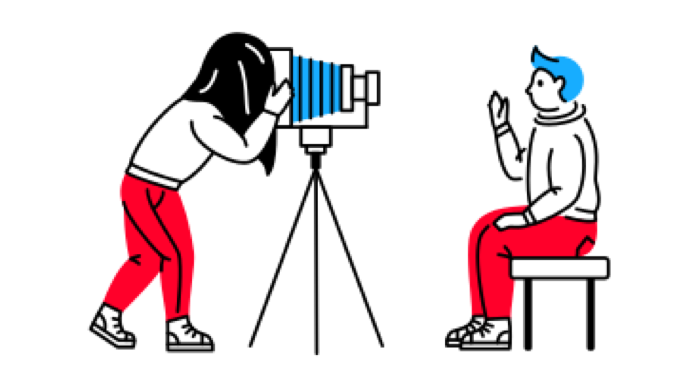
About
I’ve never met a stranger.
My cousin and I founded The UCKN Social Network. I am a retired computer scientist, while my cousin is a real estate broker.
We are both extroverts — staying social has never been our problem. In my case, I’ve never met a stranger — I could hold an in-depth conversation with a park bench.
My cousin is forever the host, always collecting stray friends, who sometimes find themselves forlorn.
‘No one checks up on me.’
Last year, a good friend — single — approached my cousin, confessing, ‘No one checks up on me, not my adult kids, not my friends. I live alone and I am concerned. Is there a technology that I can use on my phone to check in with others daily?’
Months later, my cousin asked me the same question, ‘Is there such a technology?’
‘Sure, there is a lot of technology out there, but it’s mostly quite invasive,’ I’d say. ‘Let’s talk more about your friend’s question.’
Less than a year later, we founded The UCKN Social Network as our response to this person’s concern. Our goal, at the very least, is to use technology to create social connectedness among our friends, whether we know them or not.
Surgeon General’s National Advisory on loneliness epidemic
Not surprisingly, everyone has a story that aligns with this friend’s confession, ‘No one checks up on me.’ Whether that person is an elderly neighbor or aging parent or even a young adult in their mid-twenties, we have all read news stories with sad outcomes, often with dire consequences.
In 2023, our nation’s Surgeon General, Dr. Vivek H. Murthysurprisingly, issued a bleak warning in his National Advisory, Our Epidemic of Loneliness and Isolation. As reported in this Advisory, social researchers found that isolation may lead to loneliness which impacts everything about us.
- The mortality impact of being socially disconnected is similar to that caused by smoking up to 15 cigarettes a day (Holt-Lunstad, Robles, & Sbarra, 2017).
- Loneliness and social isolation increase the risk for premature death by 26% and 29%, respectively (Holt-Lunstad et al., 2015).
- Poor or insufficient social connection is associated with increased risk of disease, including a 29% increased risk of heart disease and a 32% increased risk of stroke (Valtorta, Kanaan, Gilbody, Ronzi, & Hanratty, 2016).
- Poor or insufficient social connection is associated with increased risk for anxiety, depression, and dementia (Penninkilampi, Casey, Singh, & Brodaty, 2018; Lazzari & Rabottini, 2021).
References
Holt-Lunstad, J., Robles, T. F., & Sbarra, D. A. (2017). Advancing social connection as a public health priority in the United States. American Psychologist, 72(6), 517–530.
Holt-Lunstad, J., Smith, T. B., Baker, M., Harris, T., & Stephenson, D. (2015). Loneliness and social isolation as risk factors for mortality: A meta-analytic review. Perspectives on Psychological Science, 10(2), 227–237.
Lazzari, C., & Rabottini, M. (2021). COVID-19, loneliness, social isolation and risk of dementia in older people: A systematic review and meta-analysis of the relevant literature. International Journal of Psychiatry in Clinical Practice, 1-12.
Penninkilampi, R., Casey, A. N., Singh, M. F., & Brodaty, H. (2018). The association between social engagement, loneliness, and risk of dementia: A systematic review and meta-analysis. Journal of Alzheimer’s Disease, 66(4), 1619-1633.
Valtorta, N. K., Kanaan, M., Gilbody, S., Ronzi, S., & Hanratty, B. (2016). Loneliness and social isolation as risk factors for coronary heart disease and stroke: Systematic review and meta-analysis of longitudinal observational studies. Heart, 102(13), 1009-1016.
